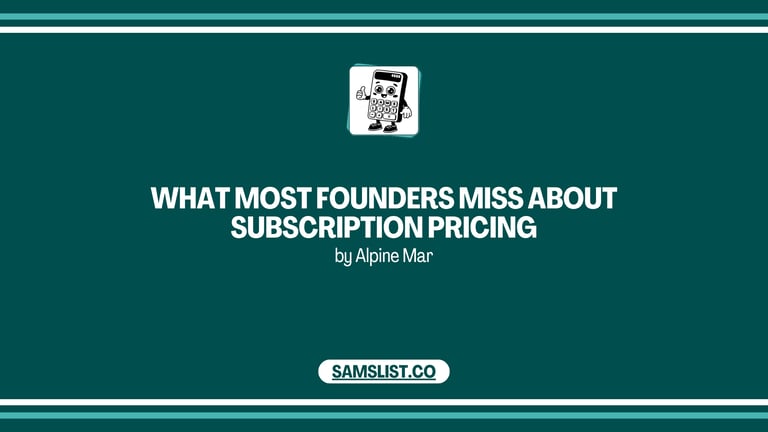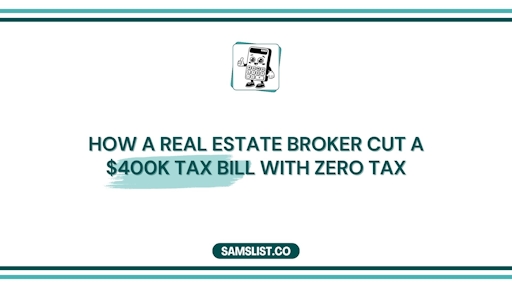Summary: She thought moving to subscriptions would cost her customers. Instead, it made her business more valuable. Here’s what her CPA uncovered.
At first, she was just a tax client.
For the first couple of years, Pablo Martell and his team atAlpine Marhandled her tax returns and tax planning.
Then one day, she asked a simple question during a routine call:
“Should I move to a subscription model?”
She wasn’t sure if it was the right move.“What if I lose my customers?”“What if my revenue drops?”
A lot ofaccountantswould’ve said,“That’s a business decision, not a tax question.”And left it at that.
But Pablo saw an opportunity.
From Tax Prep to Pattern Spotting
Pablo analyzed six months of herQuickBooks Online(QBO) data — not for tax purposes, but for pattern recognition.
And what he found was eye-opening:
- 50%+ of customers were already spending $150 or more monthly
- 40% were spending over $1,000 per month
She wasn’t selling one-off services. She was already functioning like asubscription business— without realizing it.
Modeling the Subscription Shift
Pablo built a model.
He showed her that even if~15% of customers churned, and even if she saw ashort-term dip of ~$20K in top-line revenue, she could still come out ahead — because of what she’d gain:
- Predictable, recurring revenue
- Increased customer lifetime value
- A stronger, more defensible valuation
That clarity gave her the confidence to move forward with the shift.
Why Subscription Pricing Drives Business Value
Let’s break it down:

Even with a minor dip in top-line revenue, hercash flow stabilized— and hercompany valuationincreased, just by shifting her revenue model.
When Do You Need a Fractional CFO (Not Just a CPA)?
This founder had been a tax client for years. But when it came to strategic questions — pricing, revenue modeling, long-term growth — she needed more than compliance.
That’s when Pablo stepped in.
Not all CPAs are equipped to do this.Tax prep ≠ financial strategy.
👉 If you're considering a business model shift, don't expect your tax preparer to double as afractional CFO.
👉 And if you'renot surewhether you're sitting on an opportunity like this? Ask the kind of CPA who canspot it in your books.
The Big Lesson: Are You Paying for Compliance — or Investing in Growth?
Most people never hear what their accountant has done for others. You just hear what they can do foryoutoday.
But this story? This is the kind of behind-the-scenes move that transforms businesses.
I’ve spoken to hundreds of accountants while buildingSam’s List— and stories like this one don’t make it into firm bios or website copy. They get buried. So I’ll share them here.
FAQ
Will switching to a subscription model lower my revenue?
Not necessarily. In this client’s case, the model showed a potential $20K drop in top-line revenue — but her business still came out ahead due to predictable cash flow and a higher valuation based on recurring revenue.
What should I analyze before switching to subscription pricing?
Look at:
- Monthly customer spend
- Repeat purchase behavior
- Customer churn and retention risk
Pablo used 6 months of QuickBooks Online data to identify these patterns and show the opportunity.
Do I need a fractional CFO or just a CPA?
It depends. Tax-only CPAs focus on compliance. But if you're evaluating major pricing or model shifts, you need someone who can:
- Run forecasts
- Spot revenue patterns
- Help you make financial decisions beyond tax
That’s wherefractional CFOservices come in.
How does a subscription model affect valuation?
Subscription businesses are often valued higher because of:
- Recurring revenue (ARR/MRR)
- Predictable cash flow
- Greater lifetime customer value
Investors and buyers tend to favor business models that are stable and forecastable.
You Might Also Like
- Fractional CFO Services: Costs, ROI, and When to Hire
- Do I Need a Fractional CFO? 7 Signs You’re Ready
- Accountant for Startups: Cash-Burn Control & Fund-Raise Ready
💬 Want to work with a CPA who thinks like a CFO?
Pablo Martell atAlpine Marblends tax prep withfractional CFOinsight. He's part ofSam’s List— a platform where you can find modern, specialized accountants who know how to grow businesses like yours.
Author: Kimi, Co-founder of Sam’s List
Kimi writes about what she's learning while building Sam’s List and shares honest takeaways from her conversations with accountants and financial advisors across the country. None of this is financial advice—just the stuff most people wish someone told them sooner.







